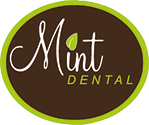 There is nothing more exciting than becoming a new parent. That excitement comes with some responsibility, as well. Your new bundle of joy can’t care for his or her gums and teeth, so it is up to you to provide your child with appropriate dental care. You need to start the process at home before the first tooth arrives and continue with regular dental appointments after the first tooth appears.
There is nothing more exciting than becoming a new parent. That excitement comes with some responsibility, as well. Your new bundle of joy can’t care for his or her gums and teeth, so it is up to you to provide your child with appropriate dental care. You need to start the process at home before the first tooth arrives and continue with regular dental appointments after the first tooth appears.
Strong gums support healthy teeth, so you need to care for your baby’s gums. After you feed your child, you need to clean his or her gums. Using a clean, damp washcloth or a piece of gauze, gently rub your baby’s gums to remove excess milk or formula.
Congratulations! Your child’s first tooth has arrived. You need to keep that tooth healthy and clean, so it’s time to get a baby toothbrush. If you want your baby to hold the toothbrush with you, get a long-handled toothbrush. If you prefer to handle the brushing on your own, go with a toothbrush that fits over your pointer finger. Regardless of the one that you choose, consider getting a teether with your toothbrush. Babies love chewing on things when they are teething, and this will make it much easier to brush your baby’s teeth.
While you do need a toothbrush, you don’t need toothpaste quite yet. Dip the toothbrush in fresh water and then brush.
Some babies don’t like to have their teeth brushed. That is OK. You can go back to using a damp washcloth or gauze for a few months and then introduce the toothbrush again. As your child gets older, it will be easier to brush his or her teeth.
Once that first tooth comes in, more will quickly follow. Wait until your baby has a few teeth and then start using toothpaste on the toothbrush. The toothpaste you choose needs to be free of fluoride unless otherwise advised by a dentist at Mint Dental. Fluoride isn’t safe until children are two years of age or older.
During this stage, you need to teach your child how to brush his or her teeth so he or she will develop good habits later. Put a small amount of toothpaste on the brush, clean the teeth, and then have your child spit the toothpaste out. It is very important that you teach your child how to spit the toothpaste out, so he or she doesn’t swallow the toothpaste after graduating to a fluoride formula.
Cavities are not fun at any age, but you don’t want your baby to have to come in for a filling. Fortunately, you can easily avoid cavities by monitoring what your child consumes. Sweetened liquids, such as flavored drinks and soda, are full of cavity-causing sugar. Keeping these beverages out of your baby’s mouth will go a long way in preventing cavities.
You can’t eliminate all drinks that contain sugar, though. Your child will also consume sugar when he or she drinks fruit juice, milk, and formula. Clean your baby’s teeth after he or she drinks these beverages.
Since brushing is so important after drinking something with sugar, you should never send your baby to bed with a bottle. If you do, your child will have prolonged contact with a sugary substance, which leads to something referred to as baby bottle caries.
Six months after your baby’s first tooth comes in, you need to visit the dentist. Our pediatric specialist, Dr. Kassam, will examine your child’s teeth to make sure there aren’t any signs of decay or any other issues. This will help your child start on a path toward oral health.
Also, Dr. Kassam will use this opportunity to help your child have a positive attitude about going to the dentist. Dr. Kassam understands that developing positive relationships with her young patients is key to eliminating dental fear and anxiety. Children who don’t fear the dentist continue to care for their teeth as adults. Schedule an appointment for your baby’s first appointment today.
Our dentists will only see your child two times a year. While we can tell your children what is expected of them, they will mimic your behavior. Make oral hygiene a family affair. When your child shows interest in oral hygiene, get him or her a toothbrush with a chunky, short handle. Have your child use the toothbrush to “clean” his teeth. Keep in mind that children don’t have the dexterity to thoroughly clean their own teeth until they are 6 or 7 years of age, so you will still need to finish the job.
After you finish with your child’s teeth, brush and floss your own. That way, your child will understand that oral hygiene is important to everyone.
Oral hygiene is a lifelong process, so make it as fun as possible to keep your children interested. Use flavored toothpaste, get a toothbrush with a favorite character, and sing some songs about brushing. When you make it fun, your child will love brushing his or her teeth.
Contact us today to learn more about how we can help your child get off on the right foot with his or her dental care.
Washington DC Office Location
329 Rhode Island Ave NE Ste A
Washington, DC 20002
(202) 529-6468
management@mintdentaldc.com
Ready for a breath of fresh air?
